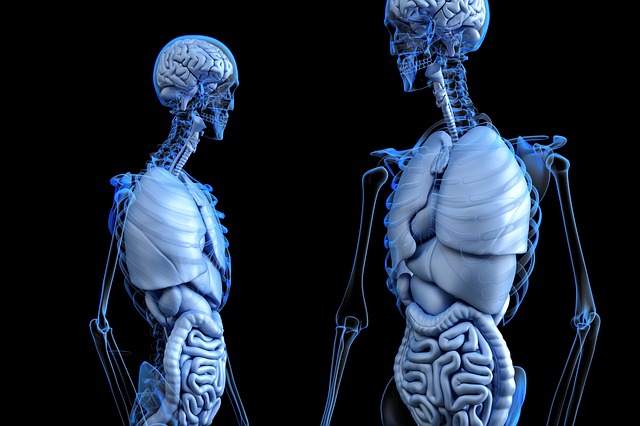
Sometimes it can be difficult—and even overwhelming—to navigate all of the health tricks, tips, and hacks at our disposal.
Where do we begin to incorporate all of this vast wisdom, and how can we know what will actually work for each one of us?
The trouble with this abundance of health tips is that often they really do work—but only for some people. In Ayurveda, we refer to health suggestions that are universally supportive for most people as tridoshic.
Foods, lifestyle suggestions, herbs, and so on, that are tridoshic will balance all three doshas without causing an excess or deficiency in any one type of person. While there are ways to get really specific for each individual based on his/her natural constitution, there is also foundational tridoshic wisdom that we can all incorporate to enhance digestion immediately.
In Ayurveda, health revolves around agni, or digestive fire. Agni can be compared to metabolism; it is the mechanism for breaking down, absorbing, and assimilating food nutrients into our own cellular material.
Agni is also the reason that both ease and dis-ease originate in the gut. If the digestive fire is out of balance, health diminishes because our cells are lacking the support that they need to function properly. This may manifest in the form of weak immunity, low energy, or poor digestive function (to name a few).
However, if we can learn to treat our agni well, agni will treat our bodies to efficient digestion, optimal nutrient absorption, strong metabolism, sustained energy, and strong immunity—all of which serve as the foundation for optimal well-being. For these reasons, nurturing agni is one of the greatest opportunities for preventative health care.
As a dedicated student of Ayurvedic medicine, I am learning more than I can implement into my everyday life. Often, I find myself so caught up in balancing my individual constitution that I straight up forget to incorporate the most simple foundational components of healthy agni.
I will get home from a long day and wonder why my hunger is all out of balance, only to realize that it was because I ate an entire meal while driving in my car. Or, I will wake up in the morning with no appetite (a sign of low agni or weak digestive fire) and be totally confused because I ate all the right foods for my body, but then remember that I did it at late at night.
Healthy digestion is so much more than what we eat; it is about how we eat. If we deepen this awareness, we will notice how these simple shifts enhance our experience of digestion, metabolism, and even hunger. True health stems from the process of conscious consumption.
Taking action toward more vibrant health is much easier said than done; if I were to fully implement all of my newly acquired Ayurvedic wisdom into a daily routine, it would be a full time job. Rather than being hard on myself for not living up to every opportunity for optimal wellness in my own busy life, I have decided to simplify and surrender to all that I can do—honoring the moments of self-care and deep awareness as they come.
So, the burning question remains: how do we find balance and learn to honor our digestion so that it provides us with long, healthful, and radiant lives? Rest assured, it is possible to authentically honor agni without feeling overwhelmed or limited in your choices.
To support a balanced digestive fire and optimal absorption, enhance your existing dietary framework with these simple tridoshic tips:
1) Do not eat when you’re not hungry.
Do: Gently encourage your agni so that you are hungry for three quality meals per day.
When working with our digestive fire, it is important to notice when the “flame,” so to speak, is getting too low or too high. If it is too low, we need to kindle the flame gently, inviting hunger back at the appropriate times.
The best way to do this is to only eat when hungry. If you are not experiencing hunger, do not force your body to eat, as digestive fire must be low. By putting too much fuel on a weak flame, we dampen an already fragile digestive fire even more. In this all too common scenario, the weak agni is unable to fully process all that has been placed upon it, leading to malabsorption and the internal buildup of partially digested food particles.
This toxic buildup is also referred to as ama. One way to monitor your own ama first thing in the morning is to inspect the tongue for a thick coating. If you are noticing this symptom of ama due to the undigested toxic build up of weak agni, scrape your tongue, drink warm water with honey and lime, and fast until hunger returns. For some, this may mean limiting snacks between meals to ensure hunger in time for the meal itself, or planning out a small snack to sustain yourself until it is the appropriate time for a full meal.
On the flip side, if agni is burning too hot, one may experience frequent hunger and anger, or impatience, associated with waiting for food (if you’ve ever felt “hangry,” you know what I’m talking about!). In this case, what we call tikshnagni (excessively sharp digestive fire) is burning through food so quickly that it is difficult to feel satiated.
In extreme instances, blazing agni can lead to ulcers, irritability, and inability to fully satisfy hunger. To cool excessive digestive fire, one can avoid spicy or pungent foods and favor cooling flavors, like rose tea, cucumbers, and coconut water.
2) Stop drinking cold water.
Do: Drink warm/room temperature water throughout the day and surrounding meals.
It’s a simple principle of physics: cold constricts; heat expands. Intake of cold foods and beverages constricts your body’s channels, or srotas. Srotas include the more obvious channels of the body like the esophagus, intestines, and veins, but also the more subtle vehicles through which energy moves throughout our being. It is best to support healthy, unrestricted channels by drinking warm or room temperature beverages. Coldness actually inhibits the ability of muscles in the gastrointestinal tract to stretch and contract.
Warm water supports the warmth of agni, while cold water diminishes it. Foods and drinks that are cold in temperature slow down the systems that process them. Have you ever gone out to dinner, been served a large glass of ice water and then consumed it mid-meal? In this same scenario, have you noticed feelings of indigestion (bloating, burping, reflux) after the meal, but attributed these symptoms entirely to the food? This is why Ayurveda advises against cold beverages.
The last thing we want to do in the midst of consuming a hearty meal is to slow digestion and severely dampen agni with ice-cold water. Thriving digestion is more than the result of healthy food choices, it is also about the intentionality with which we surround our meals. Next time you go to a restaurant, ask for hot water with lemon and sip it before and after your meal. Notice if you feel ever so slightly more comfortable in your body this time around.
3) Avoid eating after dark.
Do: Try to finish your last meal before sunset.
Digestive fire is strongest at the height of the day (between 10 a.m. and 2 p.m.), when the sun is at its peak. As the sun goes down, so does agni. It is also best for the downward flow (apana vayu) of digestion to keep the torso upright immediately after eating. If we eat too close to bedtime, we may notice how lying down shortly after a meal slows the entire process by decreasing the flow of downward movement and increasing the likelihood of bloating, burping, and reflux.
Additionally, you may find that eating a lighter and earlier dinner will help ensure that you are hungry for your breakfast the following day. Morning hunger is an immediate sign of thriving agni. Ideally, one will be comfortably hungry for their breakfast each day. Often, if we eat a heavy or exceptionally late meal, it throws off our hunger routine for the entire day to come. This perpetuates a cycle of eating late and diminishing agni.
If we think about it, our bodies spend an incredible amount of time and energy on digestion. The dark evening hours of rest time are the ideal window for our bodies to restore and to heal. If the body is still working hard to digest right before bed, there is less space and energy to go toward supporting other functions of the body. So, give yourself a break and finish eating before dark. You may even feel a little lighter and more energized the following morning. You may also notice how this choice has the potential to normalize your bowel movements. Rather than reaching for a late night snack, try a cup of soothing herbal tea, like lavender and fennel, or chamomile and nettle.
4) Do not eat while standing or driving.
Do: Take the time to sit down and fully immerse in the luxury of eating.
Allow yourself enough time to eat in a relaxed and thoughtful manner. Let this be a priority. Avoid eating while multitasking, rushing, standing, or feeling upset. See if you can take time to pause and express gratitude for your meal before consumption. Allow mealtime to feel like a ritual. After all, nourishing our bodies is the ultimate act of self-love.
The body spends a lot of time and energy digesting. One way to optimize digestion is to give the body full permission to act on it once we do choose to eat. When hunger arises and it is time to eat, do only that. Allow yourself to intentionally consume a nourishing meal, free from the demands of watching the road and the excessive stimulation of maneuvering a moving vehicle. Sitting down to eat in stillness really gives the body permission to be present and to pause in the moment. If we stand in the kitchen to quickly finish a snack, the body doesn’t know whether it should be focusing on digesting or preparing to walk out the door.
Ready to level up? Looking to deepen your connection to agni and support your most balanced digestion even more?
Here are a few additional suggestions to optimize your wellbeing before and after meals.
Sit in on your heels in thunderbolt pose for several minutes immediately after eating, and then walk at least 100 steps. Drink ginger tea before a meal to give agni an extra boost.
Never eat to full capacity; consider reserving one-third of your stomach for food, one-third for liquid, and one-third for digestion. By leaving room for the digestive process, the food particles have space to churn and breakdown.
Feeling better in your body doesn’t have to mean changing everything all at once. Start with small shifts, honor your intuition, and be patient with your body. Sometimes the smallest changes offer the largest rewards. Start now, and watch the magic unfold. Your body will love this deepening awareness that comes with honoring these subtle processes.
The better you feel, the more naturally you will find yourself moving toward balanced choices. Flow through your day with greater ease simply by incorporating these four tips into your dietary routine. When we allow ourselves to be guided by our innate tendency toward balance, we begin to feel less resistance on the journey toward optimal well-being. An openness toward nurturing agni supports the entire body, which ultimately nourishes the soul.
~
~
~
Author: Molly McConnell
Image: Pixabay/slon_dot_pics
Editor: Travis May
Copy Editor: Callie Rushton
Social Editor: Danielle Beutell
 Share on bsky
Share on bsky





Read 6 comments and reply